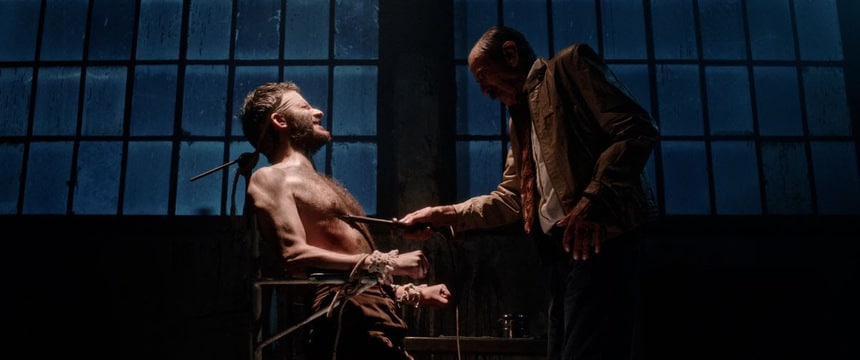Argentina went through one of the most violent and shocking dictatorships of the twentieth century in Latin America. From 1974-1983, the country was run by a military junta that would install Jorge Rafael Videla as president (a man that would later be convicted of stealing the babies of mothers that were illegally held in detention facilities so that members of his regime could adopt them). This period goes by the name of Guerra Sucia (Dirty War), and it would result in the disappearance of thousands upon thousands of people labeled as enemies of the state. Most of those who were kidnapped were never to be seen again. It was such a common occurrence that the victims of the junta were given the name of los desaparecidos (the disappeared). Students, priests, union members, left-leaning politicians and academics, and artists were all under the crosshairs. Many remain missing to this day, presumed dead in most cases.
And now there’s a horror movie about it.
Argentinian horror directors The Onetti Brothers are tackling this open wound of a topic with their new film 1978, a story about a kidnapping gone bad and the supernatural consequences of it. Set during the ’78 World Cup in Argentina, a unit of the government’s death squad (known as the Argentine Anticommunist Alliance, or Triple A) forcibly pick up a group of young people accused of being dissidents and takes them to one of their infamous detention facilities. Unfortunately for the Triple A, they took the wrong targets. Turns out the people they’ve detained are part of a cult, one that worships a very strong and very angry dark entity.
Fun fact, the leader of the Triple A was a man called José López Rega, a known occultist and self-proclaimed divinator. He was known by many as “El Brujo” (the witch or the shaman) and was often considered a kind of Rasputin-like figure that manipulated leaders behind the scenes.
A trailer has been released for 1978 and it points to a kind of horror experience that finds its inspiration in the New French Extremity and the giallo gorefests of old. Torture and macabre violence are at the forefront in the trailer, signaling the intent to hold nothing back. The forms that political cruelty and state terrorism can take will be explored here, in gruesome detail. In short, this one might be controversial.
Given the subject matter, 1978 will likely be spoken in the same breath as A Serbian Film, Saló, and Martyrs. Maybe even Uwe Boll’s 2011 Auschwitz, which was boycotted by a number of critics for treating the Holocaust as a splatter film. These movies have been criticized for being too crude and grotesque with their portrayals of violence and human atrocity. In the early 2000s they were referred to as ‘torture porn,’ movies that simply wanted to show how much damage humans could inflict on each other, usually with elements of submission and force attached to them. As the terms implies, torture for torture’s sake.

Not all of these movies hit the mark storytelling-wise. The better ones knew how to make the hard violence operate in service of a story. High Tension (2003) and Hostel (2005) fall under this category. The not-so successful examples were too frivolous with the blood and gore, just there to push buttons. Undercooked narratives didn’t only cut these movies’ potential short, but they also made them a chore to watch. There’s only so much senseless killing you can watch before asking if there’s anything more to it (which is what happens in the case of A Serbian Film). That’s where exploitation starts becoming a double-edged sword. And when it comes to historical content, that sword is more difficult to wield.
The Onetti Brothers have come up with a clever concept for 1978. This blend of dictatorship history and extreme horror does possess enough ugliness to justify its ultraviolent approach. Argentina’s Dirty War was pure horror, as were all the other Latin American countries that were afflicted by dictatorships sponsored by the United States and its militaristic Cold War rhetoric. It seems apt that such a phenomenon would generate like-minded movies, which is where 1978 comes in. That said, what will make or break the Onetti’s efforts is whether they find a way to get at something deeper with that history or if they just end up rubbing more salt on the wound.

